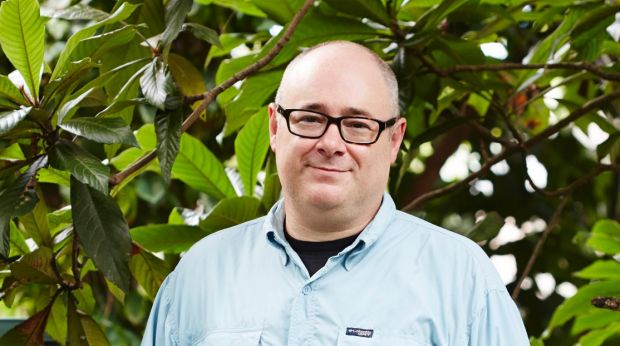The man who led the popular movement to place beehives around Sydney has called on Canberrans to put flowering plants in their backyard and end the dominance of turf and chemicals.
Doug Purdie, co-founder of The Urban Beehive, said native bee populations were the ones that needed protection, and simple actions in suburban backyards could create the corridors for them to thrive and pollinate.
“If everyone just planted a couple of things that flowered, it would make a big difference,” he said. Ideally this would mean a garden where there was at least two plants flowering at all times of the year.
Mr Purdie visited Canberra on Saturday to speak at the National Library of Australia about his second book on bees, released last month, titled The Bee Friendly Garden. It was a different perspective from his first book which focused on how to become a beekeeper.

The Urban Beehive co-founder Doug Purdie wants less chemicals and lawn-only backyards in Canberra. Photo: Supplied
He said a common problem with gardens across Australia was the unnecessary chemicals which made it difficult for bees to do what they did best.
The former IT worker, now in his 50s, said some insecticides had incredibly long lives – some lasting a year – and gardeners should look for alternatives and be aware that nursery-bought plants were often already covered in them.
He said a backyard with only turf did nothing for bees and good bugs.
Those who did use their turf could combine it with a flowering plant such as clover, and only needed to have a part of the garden with flowering plants, he said.
The Urban Beehive, of which Mr Purdie was one of two co-founders, now managed more than 100 beehives at sites from Sydney CBD rooftops to suburban backyards.
The ACT government launched a system in May making it mandatory for Canberra beekeepers to register their hives, a change aimed at allowing a better public response to a possible outbreak of bee-related disease.
There are close to 700 beekeepers in Canberra, with nearly 300 association members.




